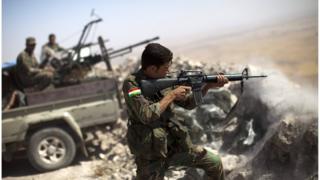Iraqi government forces have......................................................................................................................................................................................................................................................................................................................................................................................................................................................................................................................................................................................................................................................................................................................................................................................................................................................................................................................................................................................................................................................................................................................................................................................................................................................................................................................................................................................................................................................................................................................................................................................................................
Iraqis push toward IS-held Mosul in long-awaited operation
.to retake Mosul, the de-facto capital of the Islamic State of Iraq and the Levant (ISIL) group in Iraq.
Up to 1.5 million civilians remain in the city, according to the United Nations, amid fears that the vastly outnumbered ISIL fighters could use them as human shields as they seek to repel the assault on its last major stronghold in the country.
Why is Mosul important?
Mosul is Iraq's second largest city and the last urban centre still under ISIL control in Iraq after a series of government offensives to reverse the group's seizure of territory in 2014.
Al Jazeera's Zeina Khodr reports from the Khazir frontline
This is a very complicated operation, simply because of the mix of forces that are taking part. There is the central government in Baghdad, the Iraqi forces, Iraqi counterterrorism units and there is also the Kurdish Peshmerga who are allied in this fight but who do have a lot of differences.
There is also the question of Iranian-backed Shia militias - a very controversial issue because the people of Mosul are mainly Sunni. They fear that if the Shia militias actually take part and enter the city there will be reprisals. But what we understand from the government is that they are going to be staying at the perimeter of Mosul and they will not be advancing towards the city centre.
"The hour has come and the moment of great victory is near," Haider al-Abadi, Iraq's prime minister, said early on Monday in a speech broadcast on state TV, surrounded by the armed forces' top commanders.
The bid to retake Mosul comes after the military, backed by armed tribes, militias and US-led coalition air strikes, regained much of the territory the fighters seized in 2014 and 2015.
"We are proud to stand with you in this historic operation," Brett McGurk, US envoy to the coalition against ISIL, said on Twitter at the start of the Mosul offensive.Al Jazeera's Zeina Khodr, reporting from Khazir, just east of Mosul, said preparations for the offensive had long been under way, with forces amassing around the ISIL-held city's outskirts.
"Now that the formal announcement has been made, we are expecting the US-led coalition to carry out air strikes in support of what is expected to be a ground advance from a number of front lines around the city," she said.
But the launch of the operation marks only the start of a battle that is likely to be the most difficult in the war against ISIL.
Iraqis push toward IS-held Mosul in long-awaited operation
.to retake Mosul, the de-facto capital of the Islamic State of Iraq and the Levant (ISIL) group in Iraq.
Up to 1.5 million civilians remain in the city, according to the United Nations, amid fears that the vastly outnumbered ISIL fighters could use them as human shields as they seek to repel the assault on its last major stronghold in the country.
Why is Mosul important?
Mosul is Iraq's second largest city and the last urban centre still under ISIL control in Iraq after a series of government offensives to reverse the group's seizure of territory in 2014.
Al Jazeera's Zeina Khodr reports from the Khazir frontline
This is a very complicated operation, simply because of the mix of forces that are taking part. There is the central government in Baghdad, the Iraqi forces, Iraqi counterterrorism units and there is also the Kurdish Peshmerga who are allied in this fight but who do have a lot of differences.
There is also the question of Iranian-backed Shia militias - a very controversial issue because the people of Mosul are mainly Sunni. They fear that if the Shia militias actually take part and enter the city there will be reprisals. But what we understand from the government is that they are going to be staying at the perimeter of Mosul and they will not be advancing towards the city centre.
"The hour has come and the moment of great victory is near," Haider al-Abadi, Iraq's prime minister, said early on Monday in a speech broadcast on state TV, surrounded by the armed forces' top commanders.
The bid to retake Mosul comes after the military, backed by armed tribes, militias and US-led coalition air strikes, regained much of the territory the fighters seized in 2014 and 2015.
"We are proud to stand with you in this historic operation," Brett McGurk, US envoy to the coalition against ISIL, said on Twitter at the start of the Mosul offensive.Al Jazeera's Zeina Khodr, reporting from Khazir, just east of Mosul, said preparations for the offensive had long been under way, with forces amassing around the ISIL-held city's outskirts.
"Now that the formal announcement has been made, we are expecting the US-led coalition to carry out air strikes in support of what is expected to be a ground advance from a number of front lines around the city," she said.
But the launch of the operation marks only the start of a battle that is likely to be the most difficult in the war against ISIL.



